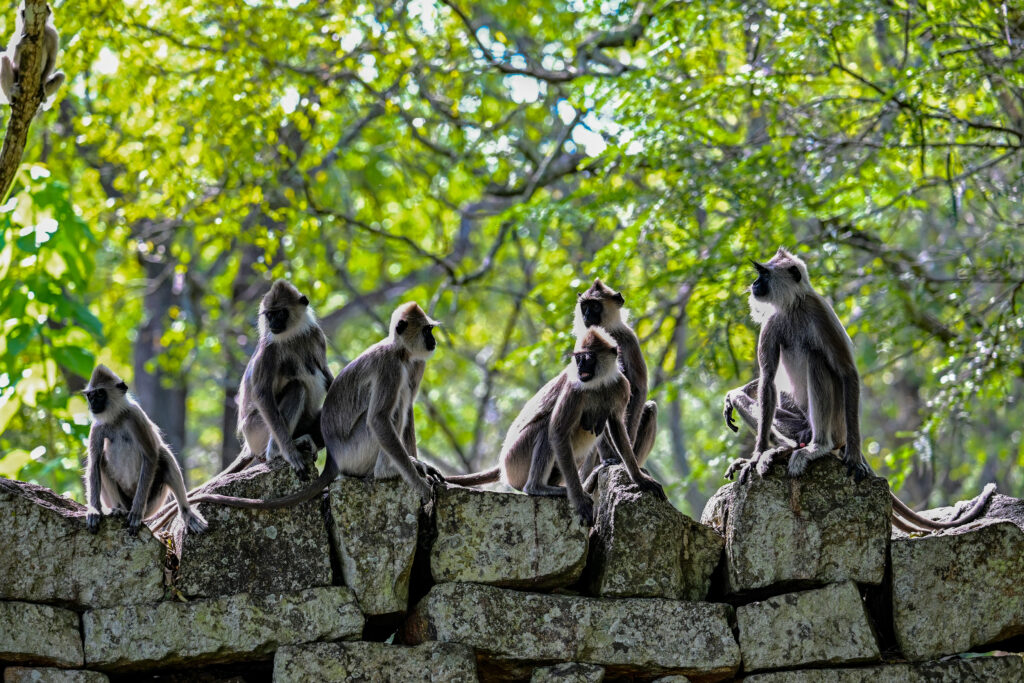Un an après les élections européennes, et surtout deux ans avant la présidentielle, Marine Le Pen et Jordan Bardella s’affichent ensemble lundi dans le Loiret lors d’un meeting avec plusieurs de leurs partenaires continentaux, un banquet champêtre qui entend montrer l’unité de leur binôme.Dans la campagne de Mormant-sur-Vernisson, l’événement a été baptisé “La fête de la victoire”: celle remportée ce 9 juin 2024, il y a un an jour pour jour, par le Rassemblement national lorsque sa liste est arrivée en tête du scrutin européen en recueillant 31,37% des suffrages, à l’époque le meilleur score de l’histoire du parti d’extrême droite lors d’un premier tour.Dès midi, quelques milliers de partisans – français pour la plupart – s’étaient massés face à la scène montée dans une vaste cour de ferme, entre food-trucks et stands de bonbons, pour écouter les premières prises de parole des invités venus des quatre coins de l’Europe, à commencer par la grecque Afroditi Latinopoulou, le polonais Krzysztof Bosak, l’estonien Martin Helme, et le belge Tom Van Grieken.Sont également attendus le vice-président du Conseil des ministres italien Matteo Salvini, le leader du parti espagnol Vox Santiago Abascal, ainsi que le Premier ministre hongrois Viktor Orban, qui s’est déjà fendu dimanche sur les réseaux d’un message évoquant Montargis, théâtre de violences urbaines il y a deux ans et selon lui “un exemple à petite échelle de ce (…) qui se passe lorsque les patriotes perdent le contrôle”.- “Arrêter d’avoir peur” -Dans l’assistance, beaucoup sont toutefois venus entendre Mme Le Pen et M. Bardella, comme Antoine Contrant, 21 ans et déjà responsable local du RN près de Dunkerque, curieux de savoir ce que ses dirigeants “vont dire aux alliés” européens avec lesquels “on sera amenés à travailler” car “on veut accéder au pouvoir”.D’autres comme Marine, 29 ans, assistante maternelle près de Chartres, attend plutôt “un message positif, pour que les gens arrêtent d’avoir peur” du parti d’extrême droite et au contraire “donner envie aux gens de leur faire confiance”.Les opposants s’étaient, eux, donné rendez-vous pour une contre-manifestation à Montargis, à une dizaine de kilomètres, en présence des parlementaires Philippe Brun et Chloé Ridel (PS), Ian Brossat (PCF), Manon Aubry et Louis Boyard (LFI), ainsi que plusieurs leaders syndicaux dont Sophie Binet (CGT) et Marylise Léon (CFDT).Mobilisation censée faire contrepoids à celle des leaders nationalistes, réunis sous la bannière “Patriotes pour l’Europe” (85 eurodéputés sur 720) et venus afficher leur unité malgré de profondes divergences, notamment entre Marine Le Pen et certains de ses partenaires adeptes des saillies ultra-conservatrices et d’un trumpisme béat.- Poison lent -La garden party de lundi doit de toute façon s’articuler autour d’enjeux principalement franco-français et illustrer la solidité du “duo” Le Pen-Bardella.Car l’anniversaire des européennes du 9 juin coïncide également avec celui de la dissolution, point de départ d’une campagne législative initialement jugée gagnable, mais qui s’est fracassée sur un casting hasardeux de candidats et un “front républicain”. Au final, le RN a fait élire 120 députés, très loin des 289 nécessaires pour envoyer M. Bardella à Matignon.Un an après, l’aspirant Premier ministre de 2024 a changé de statut, à présent candidat putatif à la présidentielle si l’inéligibilité de Marine Le Pen devait être confirmée par la Cour d’appel à l’été 2026.Le coup de tonnerre provoqué par cette condamnation, le 31 mars dernier, a sérieusement ébranlé le “ticket” qu’avait mis sur pied la députée du Pas-de-Calais. Le “plan B comme Bardella”? C’est toujours elle la “candidate”, ne cesse-t-elle de rappeler pour minimiser l’hypothèse, sans cacher son exaspération envers “ceux qui veulent l’enterrer trop tôt”.Reste que le succès de son livre en librairie, sa popularité et, surtout, ses intentions de vote comparables à celle de sa “patronne”, ont propulsé Jordan Bardella dans le cercle fermé des “présidentiables”. L’idée, notamment relayée par la presse d’extrême droite qui n’a jamais caché sa préférence pour le bientôt trentenaire plutôt que pour Marine Le Pen, agit depuis deux mois comme un poison lent chez les lepénistes. Lesquels veulent se convaincre que le rendez-vous champêtre dans le Loiret de lundi agira comme une dose d’antidote.







